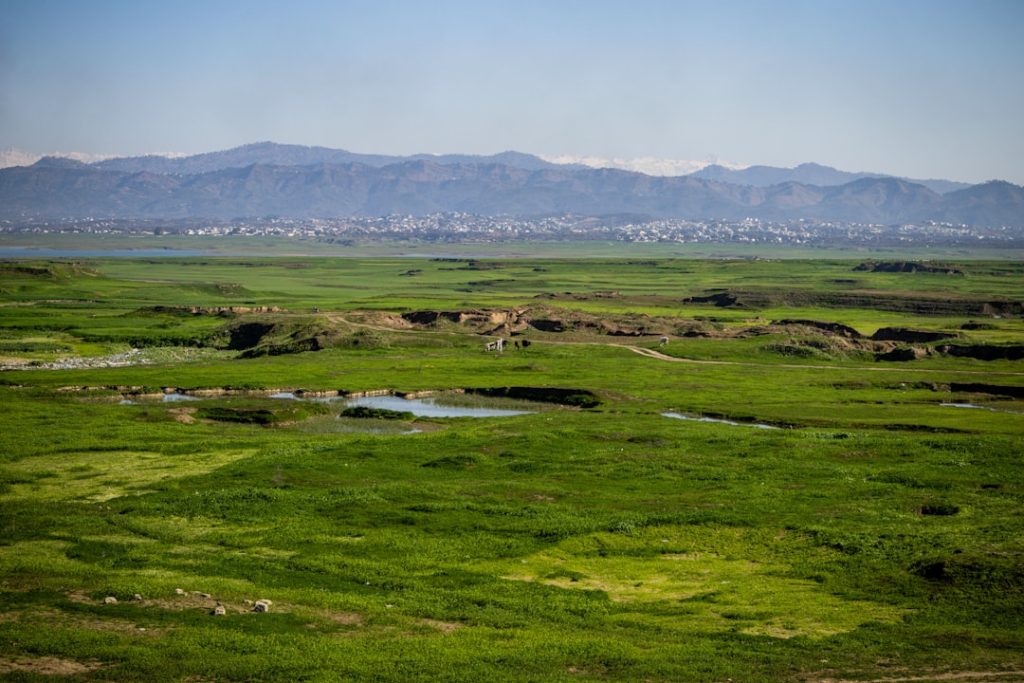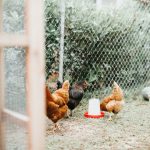Chickens are susceptible to heat stress, particularly during hot summer months. Recognizing signs of heat stress in chickens is crucial for owners to take appropriate action and maintain their flock’s health. Common indicators of heat stress include panting, wings held away from the body, lethargy, reduced egg production, and in severe cases, sudden death.
Other signs may include rapid breathing, drooping wings, and pale combs and wattles. Heat stress can significantly impact chickens, leading to decreased egg production, reduced feed intake, and mortality. Therefore, it is essential for chicken owners to be vigilant, especially during hot weather, and observe their flock’s behavior closely.
By identifying signs of heat stress early, owners can implement measures to cool their birds and prevent further complications. Proactive management of heat stress is vital for maintaining the health and well-being of chickens. Understanding and recognizing these signs allows owners to take timely action, ensuring their flock remains comfortable and productive during periods of high temperatures.
Table of Contents
- 1 Providing adequate shade and ventilation in the coop
- 2 Offering cool and refreshing treats to your chickens
- 3 Ensuring access to plenty of fresh, cool water
- 4 Creating a dust bathing area for chickens to cool off
- 5 Adjusting feeding schedules to avoid peak heat times
- 6 Monitoring your chickens for signs of heat stress and taking immediate action
- 7 FAQs
Key Takeaways
- Panting, lethargy, and holding wings away from the body are signs of heat stress in chickens
- Ensure the coop has adequate shade and ventilation to prevent heat buildup
- Offer cool treats like watermelon or frozen berries to help chickens cool down
- Provide plenty of fresh, cool water for chickens to drink throughout the day
- Create a dust bathing area for chickens to help them cool off and regulate their body temperature
- Adjust feeding schedules to avoid feeding during peak heat times
- Monitor chickens for signs of heat stress and take immediate action if necessary
Providing adequate shade and ventilation in the coop
Shade and Ventilation in the Coop
One of the most important steps in preventing heat stress in chickens is to provide adequate shade and ventilation in the coop. This can be achieved by positioning the coop in a shaded area, using reflective roofing materials to reduce heat absorption, and ensuring that there are plenty of windows and vents to allow for air circulation. Additionally, adding shade cloth or awnings to the outside of the coop can help to further reduce the amount of direct sunlight that reaches the birds.
Choosing the Right Materials for the Coop
By providing ample shade and ventilation in the coop, chicken owners can help to keep their flock cool and comfortable during hot weather. In addition to providing shade and ventilation in the coop, it’s also important to consider the materials used in the construction of the coop. Metal coops, for example, can become extremely hot in the sun, so it’s best to opt for materials that do not absorb as much heat, such as wood or plastic.
Creating a Comfortable Environment
By taking these steps to provide adequate shade and ventilation in the coop, chicken owners can help to create a more comfortable environment for their birds, reducing the risk of heat stress and its associated negative effects.
Offering cool and refreshing treats to your chickens

Another effective way to help chickens beat the heat is by offering them cool and refreshing treats. This can include a variety of fruits and vegetables that have high water content, such as watermelon, cucumbers, and lettuce. These treats not only provide hydration but also offer a welcome break from the heat for chickens.
Additionally, frozen treats such as ice cubes or frozen berries can be a fun and refreshing way to help chickens cool down during hot weather. By offering cool and refreshing treats to their flock, chicken owners can help to keep their birds hydrated and comfortable, reducing the risk of heat stress. In addition to fruits and vegetables, some chicken owners also choose to offer electrolyte supplements to their birds during hot weather.
These supplements can help to replace essential minerals that are lost through sweating and panting, helping to keep chickens healthy and hydrated. By offering a variety of cool and refreshing treats to their flock, chicken owners can help to ensure that their birds stay cool and comfortable during hot weather, ultimately reducing the risk of heat stress.
Ensuring access to plenty of fresh, cool water
One of the most important ways to prevent heat stress in chickens is by ensuring that they have access to plenty of fresh, cool water at all times. Chickens can quickly become dehydrated in hot weather, so it’s crucial for chicken owners to regularly check and refill their water sources to ensure that their flock stays hydrated. Additionally, it’s a good idea to provide multiple water sources throughout the coop and run area to prevent overcrowding and ensure that all birds have easy access to water.
By ensuring that their flock has access to plenty of fresh, cool water, chicken owners can help to prevent dehydration and reduce the risk of heat stress. In addition to providing ample water sources, some chicken owners also choose to add electrolytes or apple cider vinegar to their birds’ water during hot weather. These additives can help to keep chickens hydrated and healthy, reducing the risk of heat stress.
By taking these steps to ensure that their flock has access to plenty of fresh, cool water, chicken owners can help to keep their birds comfortable and healthy during hot weather.
Creating a dust bathing area for chickens to cool off
Dust bathing is a natural behavior for chickens that not only helps them keep clean but also helps them regulate their body temperature. During hot weather, chickens may increase their dust bathing behavior as a way to cool off and reduce the risk of heat stress. To support this natural behavior, chicken owners can create a designated dust bathing area in the coop or run by providing a shallow container filled with sand or fine dirt.
By creating a dust bathing area for their flock, chicken owners can help to encourage this natural cooling behavior and reduce the risk of heat stress in their birds. In addition to providing a designated dust bathing area, chicken owners can also consider adding diatomaceous earth or wood ash to the dust bathing area. These substances can help to control parasites and pests while also providing additional cooling benefits for chickens.
By creating a dust bathing area for their flock, chicken owners can help to support their birds’ natural behaviors and provide them with a way to stay cool and comfortable during hot weather.
Adjusting feeding schedules to avoid peak heat times

Reducing Metabolic Heat
Feeding smaller meals more frequently throughout the day can help prevent overheating by reducing the metabolic heat generated during digestion. This approach can significantly contribute to keeping your flock comfortable and reducing the risk of heat stress.
Offering Cool Feed Options
In addition to adjusting feeding schedules, some chicken owners choose to offer frozen or chilled feed during hot weather as a way to help their birds stay cool. This can include freezing fruits or vegetables into ice cube trays or offering chilled grains or pellets.
Keeping Your Flock Hydrated and Comfortable
By providing cool feed options during hot weather, chicken owners can help keep their flock hydrated and comfortable while reducing the risk of heat stress. This simple yet effective approach can make a significant difference in the health and well-being of your chickens during the hot summer months.
Monitoring your chickens for signs of heat stress and taking immediate action
Finally, it’s crucial for chicken owners to closely monitor their flock for any signs of heat stress and take immediate action if necessary. This includes regularly observing their birds for signs of distress such as panting, lethargy, or drooping wings, as well as checking on their overall behavior and well-being during hot weather. If any signs of heat stress are observed, it’s important for chicken owners to take immediate action by moving their birds to a cooler area, providing access to fresh water, offering cool treats, or taking any other necessary steps to help their flock cool down.
In addition to monitoring their flock for signs of heat stress, chicken owners should also be prepared with a plan for how they will respond if heat stress occurs. This may include having a designated cooling area set up in advance, keeping electrolyte supplements on hand, or having a plan for how they will adjust feeding schedules or provide additional shade and ventilation if necessary. By monitoring their flock for signs of heat stress and being prepared with a plan of action, chicken owners can help to ensure that their birds stay safe and comfortable during hot weather.
In conclusion, preventing heat stress in chickens requires proactive measures such as providing adequate shade and ventilation in the coop, offering cool and refreshing treats, ensuring access to plenty of fresh, cool water, creating a dust bathing area for chickens to cool off, adjusting feeding schedules, and closely monitoring your flock for signs of distress. By understanding the signs of heat stress in chickens and taking these proactive measures, chicken owners can help to keep their birds cool and comfortable during hot weather while reducing the risk of heat-related health issues. Ultimately, by prioritizing the well-being of their flock and taking steps to prevent heat stress, chicken owners can ensure that their birds stay healthy and happy year-round.
If you’re looking for ideas on how to keep your chickens cool in the summertime, you might also be interested in learning about large chicken coop ideas. Check out this article for some inspiration on creating a comfortable and spacious living environment for your flock.
FAQs
What are some signs that my chickens are overheated?
Some signs that your chickens are overheated include panting, holding their wings away from their bodies, reduced egg production, and lethargy.
How can I keep my chickens cool in the summertime?
You can keep your chickens cool in the summertime by providing plenty of shade, ensuring good ventilation in the coop, offering cool water to drink, and providing frozen treats like fruits and vegetables.
What are some ways to provide shade for my chickens?
You can provide shade for your chickens by using tarps or shade cloths to cover their coop and run, planting trees or shrubs for natural shade, and creating shady areas with umbrellas or awnings.
How can I improve ventilation in my chicken coop?
You can improve ventilation in your chicken coop by installing windows and vents to allow for air flow, using fans to circulate air, and keeping the coop clean to prevent ammonia buildup.
What should I do if my chickens are overheated?
If your chickens are overheated, you should move them to a cooler area with shade and provide them with cool water to drink. You can also use a mister or hose to lightly spray them with water to help lower their body temperature.
Meet Walter, the feathered-friend fanatic of Florida! Nestled in the sunshine state, Walter struts through life with his feathered companions, clucking his way to happiness. With a coop that’s fancier than a five-star hotel, he’s the Don Juan of the chicken world. When he’s not teaching his hens to do the cha-cha, you’ll find him in a heated debate with his prized rooster, Sir Clucks-a-Lot. Walter’s poultry passion is no yolk; he’s the sunny-side-up guy you never knew you needed in your flock of friends!







